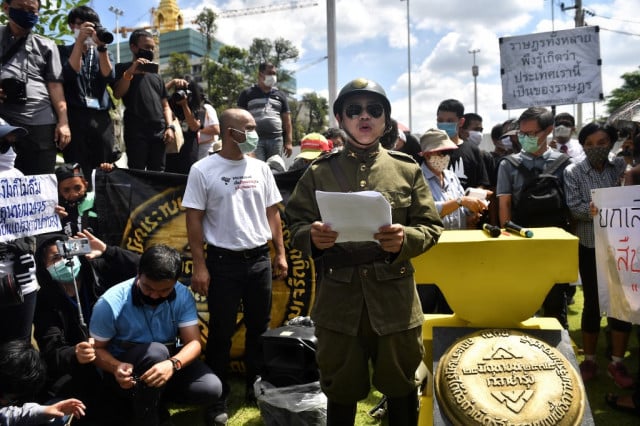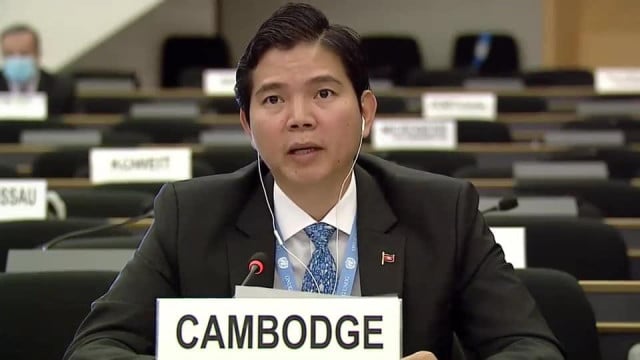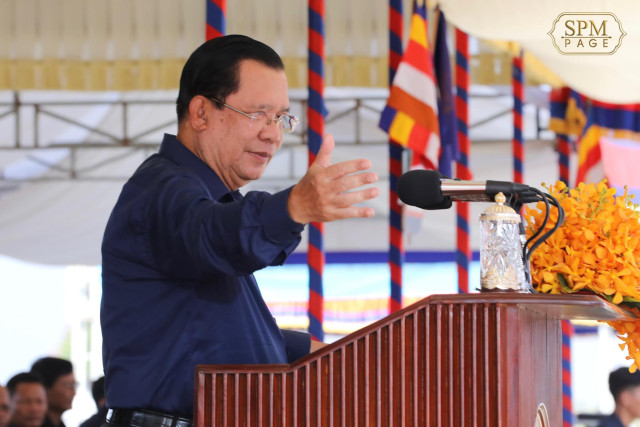Cambodia and France Forge Dynamic Partnership, Elevating Beyond Traditional Bilateral Relations

- By Vanndasambath Chhuon
- and Chea Sameang
- January 28, 2024 1:00 PM
Prime Minister Hun Manet's visit to France represents a milestone in Cambodia-France relations. Also, it signifies France's commitment to expanding closer ties with ASEAN under its Indo-Pacific Strategy. The visit could also pave the way for improved relations between Cambodia and the European Union (EU).
During the meeting between Cambodian Prime Minister Hun Manet and French President Emmanuel Macron in Paris on January 18-19, 2024, it became evident that France's invitation to Cambodia was a clear indication of their intention to strengthen their relationship and create a more significant presence in Cambodia and the Association of Southeast Asian Nations (ASEAN). Additionally, the invitation serves as an opportunity to reassess Cambodia's relationship with the EU. It is worth noting that Hun Manet met with Macron after the visits of former Prime Minister Hun Sen and King Norodom Sihamoni to France in 2022 and 2023, respectively.
Moving Forward France-Cambodia Relations
France is starting a strategic position towards Cambodia, making the Kingdom's foreign policy more diversified with the Western world, with a possible shift toward easing constrained relations with the European Union. From this standpoint, they are looking at a commitment to fix the old boulevard of strategic position from the past and reignite the Francophonie spirit in the Kingdom. The visit may also lend itself toward improved bilateral relations between the EU and Cambodia, where priorities for the EU, such as human rights and democracy, will allow the EU’s capacity to support positive developments.
The joint statement on 18 January at the Elysée Palace highlighted a remarkable dynamism, dominated by economic affairs, Francophonie promotion, cultural heritage preservation, and, to some extent, the political aspect related to the Paris Peace Agreement, the French Development Agency (AFD), and the international rule-based order.
As one of the most active Francophonie states in France-Indochina, Cambodia is set to host the Francophonie Summit in 2026, marking a milestone to lean closer ties with France, revitalizing diplomatic relations, and opening new avenues for trade, investment, and technical exchange.
Of course, the meeting serves as a testament to the enduring friendship between Cambodia and France. For instance, France had a pivotal role in the Paris Peace Agreement and the substantial support provided by the French Development Agency (AFD) under its commitment to fostering peace, democracy and economic advancement in Cambodia. Meanwhile, AFD's investments have surpassed 300 million euros since 2012, and there is a fresh pledge of up to 400 million euros for priority sectors in 2023-2024.
Regarding the cultural aspect, President Macron emphasized France's important role in supporting the restoration of Cambodia's culture—for instance, the active role in safeguarding and developing the Angkor site since 1993.
These factors, combined with the potential for increased economic and investment opportunities in Cambodia, make it a valuable partner for France in the ASEAN region.
A Gateway to Enhancing France-ASEAN Relations and Indo-Pacific Strategies
The visit also highlighted the potential for France in a niche avenue to reinforce France-ASEAN engagement within the broader France Indo-Pacific Strategies – toward the vision centred around the principles of open society, inclusivity and the promotion of a rules-based international order, at the same time, to contribute to an environment conducive to cooperation, trade, and security. “For France, Cambodia is a gateway of French policy for ASEAN '' as French ambassador to Cambodia Jacques Pellet was quoted by the Phnom Penh Post.
Since 2021, the geopolitical shifts have tested France's "strategic autonomy" and role as a "balancing power" in the Indo-Pacific. Consequently, the French government may shift its posture to become a more pragmatic and constructive regional stakeholder.
The move of President Macron is also aligned with France’s effort to bolster defence security partnerships, anchoring in the Indo-Pacific region. This shift is underscored by the “stab in the back” of the AUKUS alliance in 2021 and France's established strategic partnership in the area, including with Vietnam, the neighbour to the Kingdom.
Macron aims to expand his influence in the Indo-Pacific region by becoming a core external partner to ASEAN, the heart of regional architecture. As mentioned by Macron with Nikkei and the Financial Times, he pointed to Paris' interest in France- ASEAN Dialogue Partners.
Moreover, the visit also carries the potential catalyst for addressing shared environmental concerns in the interest of France, Cambodia, and the ASEAN level. In which France can underscore its collaboration with a broader sustainable development agenda.
In essence, it is not just PM Hun Manet’s or Cambodia's achievements but also a sign that France is taking more profound action in rolling their France Indo-Pacific Strategies and role in ASEAN. The recent visits between ASEAN member states' leaders and interactions with President Macron underscored Paris' amplified resonance across Southeast Asian capitals.
Another important factor behind the renewal relationship may also help improve the cooperation agreement signed in 1997 between the Kingdom and the European Communities agreement, which focuses on development, economic cooperation, trade, and promoting democracy and human rights. Given the relatively strong influence of France within the EU, Paris could capitalize on the fresh start-up of the renewed relations it has with Cambodia to strike a more balanced EU decision based on human rights concerns, which give way toward the suspension of Everything but Arms (EBA), and the Generalized Scheme of Preferences which directly affect people's livelihoods by putting textile workers, most of them women, out of work. France certainly has what it takes to help improve the unhealthy bilateral relations between Cambodia and the EU, thereby preventing the country from being pushed closer into China’s sphere of influence.
Chhuon Vanndasambath is the Deputy Director of the Cambodian Center for Regional Studies.
Chea Sameang is an independent analyst on domestic and regional affairs.















